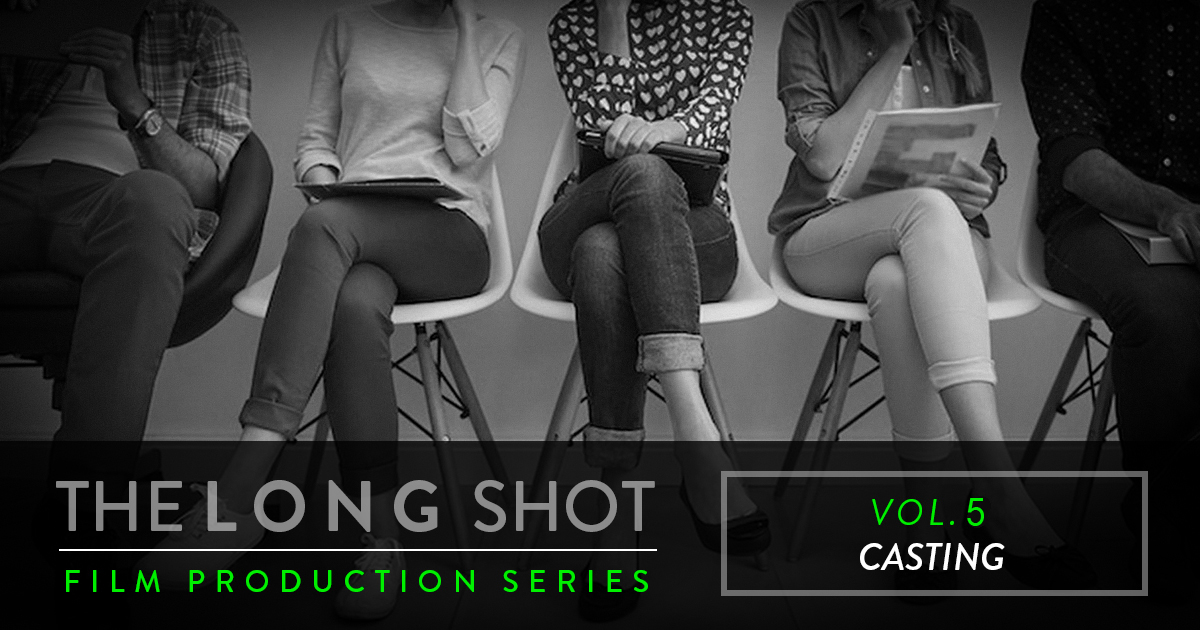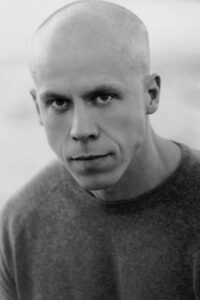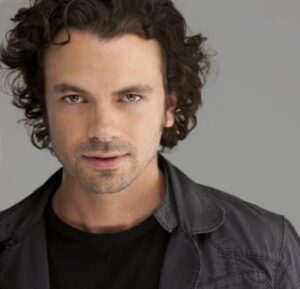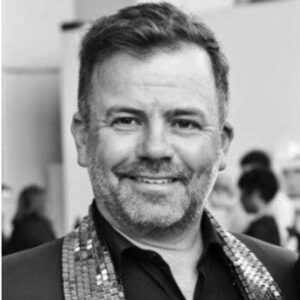
Pop quiz. Do you recognize any of the following names: Juliet Taylor, Ellen Lewis, Junie Lowry-Johnson, and Sarah Finn? They are just a few of the most influential and important people you’ve never heard of in the entertainment industry. They are casting directors. Sarah Finn casted almost every single Marvel movie; if you’re a fan of Robert Downey Jr. as Iron Man, Chis Evans as Captain America, Dave Bautista as Drax, and Michael Pena as Luis, you can thank the incredibly discerning tastes of Sarah Finn. Casting Directors can launch careers. Oftentimes, they will have an actor read for a role and even if they weren’t perfect for the part, if she/he left a good impression, the casting director will keep the actors headshot on file and bring them back for a part that’s a better fit. It has happened for some of the biggest names in the industry and lead to their big break.

The main reason Casting Directors are so influential is because performance is the most important component of any film. Full stop. Unless you are directing an arthouse film about buildings, flowers or other inanimate objects, the performances of your characters are fundamental to making a good film. I was a student in film school, I work professionally in Television & Film production and I taught higher education and filmmaking workshops; believe me when I say: the quickest way to turn off your audience is to have unbelievable or bad acting. No matter how good your lighting, how clever your camera movements or tight your editing, if the performance isn’t there your movie is not good. I can’t tell you how many crappy student films I have watched where the director – out of convenience, laziness, or naïveté – casted a roommate, boyfriend or family member as a lead actor in a film with zero acting experience. A good actor can save bad dialogue. A bad actor will ruin a film.
What’s an independent filmmaker to do? Luckily, there are more resources than ever to assist you.
Fresh out of college, I worked as a PA during the day and, to pay the bills, moonlighted as a waiter at Philly’s, an Italian restaurant in Astoria Queens. When I began pre-production on my film Paterfamilias, I needed a compelling lead actor. It just so happened that the bartender who got me the job waiting tables was part of the group of friends I ran with in Buffalo for undergrad: Steve Cirbus. I had never worked with Steve before but seeing how he interacted with the customers, he always seemed to be “on”. Counting out our tips one evening, he confessed that he used the bartending job to work on his acting skills and techniques. I was impressed with the seriousness he approached his work. I offered the lead role “Eric” to Steve and to this day, he has been one of the most talented actors I ever had the pleasure to work with. Steve had a degree in Theater but also had an innate understanding of film and how to play for the camera and not the back row of the audience. Connecting with your local community theater or acting school can be a smart first step in your casting process but be wary of actors who can’t shrink their performance for an intimate medium like film, especially young and inexperienced actors who have enough training to make themselves a liability.

Now that I had Steve on board, I needed to cast an older actor to play his father. This role was way more difficult to cast. I could throw a rock out of my window in Brooklyn and hit a hungry young actor willing to work for free; the pool of older actors shrinks exponentially – especially talented actors. I put an add on Craigslist & Backstage (this is pre-social media days). A friend let me use his office in Hell’s Kitchen after hours to hold the audition. I booked the dozen responses by email, scheduled them in half hour increments, printed out multiple copies of a scene, set up a camera and rolled the dice. It was mostly a failure. Not that the actors were bad (well, not all of them), they were just not right for the role. It was getting late in the evening and I was already considering the effort a dud when the door to the studio flew open and Myles McVane made his grand entrance exclaiming “I am here”. With his shaved head and droopy white mustache and goatee, Myles had a unique presence. He could pass as Steve’s father for sure, which was critical, but what he had more than any other actor that evening was his presence. He was a character that could hold the attention of the audience. Myles did a fine job reading the lines although he had some theater mannerisms that I knew I would have to work around. This is where the choice of Steve as the lead role was critical. Most of the film is a conversation between father and son. Steve was so grounded in the scene he forced Myles to react to him. Myles also toned down his performance to match the mood and pacing Steve had already set. As the Director, I mostly chimed in with character backstory and motivation but tried to stay out of the way and let the actors find the beats. You can watch the short film here and decide if my approach worked or not.

After a few years in NYC, I luckily met a group of improv actors and comedians. Instead of writing characters and then searching for the perfect actor for the role, I collaborated with the performer to create a character. It made the process much more fun and rewarding. I teamed up with comedian and friend David Crabb to write and shoot a pilot for IFC. It was called The Bar. The premise follows a group of friends who work at a bar in the East Village. Each episode begins at the end of a shift and we focus on a different character’s life outside of work as he/she pursues a true passion: painting, acting, music, etc. It was based on the true-life stories of my artist community struggling to make it in the big city. There was 10 episodes; each episode was 10-13 minutes long, would be stand alone, but could be watched back to back and deliver a feature films worth of storytelling. If it sounds familiar, like a new streaming service called Quiby, you are correct; we were just a little ahead of our time. Too bad IFC had zero interest in buying the concept.
Developing the characters with our friends, the cast took care of itself. David convinced me to cast Ben Ramaeke as his character’s roommate so the two could improvise scenes together. I am skeptical of too much improv on a indie set (you can read my article on rehearsals to learn why) but in this instance I allowed it. The most difficult part of directing Ben was to hold back the laughter while the camera rolls. We did struggle to cast one role: Ryan, the lead bartender.. At the time I was working as an audio engineer for Rockstar games capturing reference audio during motion capture sessions in their Long Island studio. The job allowed me to work with a stable of talented, hardworking actors that Rockstar Games employed. Being a bold, independent filmmaker, I approached one of the actors on set, Daniel Hall, and pitched him the role. He was interested, there was just one catch: he was SAG. Would I mind contacting the union and negotiate? I never tried before, but I really liked Daniel for the part, so I sucked it up and called SAG/AFTRA. It was actually rather painless. Because we were a small budget shoot, SAG offered waivers so Daniel could work with us without pay. It turns out, they love encouraging independent filmmakers who are starting their careers. If you ever hesitate to hire an actor because of their union affiliation you are making a huge mistake. That was a valuable lesson: don’t let my fear of the unknown force me to compromise before doing proper research. You can watch the pilot here, and the second episode here. We shot part of a third episode but the project lost steam and without funding, I moved onto other endeavors.

If you have a small budget, don’t hesitate to reach out to local casting directors in your area. You’d be surprised how accommodating they are to independent producers. I was filming in Portland, Oregon on my last short, Food Cart, and I had a meeting with Simon Max Hill – known for casting project like Portlandia, Shrill, Gus Van Sant movies, Kelly Reichardt movies, Macon Blair and many other independent films. For a small fee, Simon offered to send me a curated list of headshots and an opportunity to use his space to hold auditions. Unfortunately, we had zero dollars in the budget for casting, but I was blown away by how supportive his agency was in my project.
Since we had to do the casting for Food Cart ourselves, I reached out to my network in Portland to find an actor for the lead role, Ali. Starting out in New York City, I didn’t realize how challenging it would be to find a minority actor in Portland; it is a very progressive city, but let’s face it, Portland is very white. After striking out for weeks, I finally reached out to the OMPA and luckily someone posted my casting audition to a Facebook group for minority actors in Portland. It turns out, they all know each other and support each other, so word of our casting spread throughout the community without any outreach from my team. How cool is that? We auditioned a half a dozen actors for the lead role and the hardest part was deciding who to choose. Every single actor who read that day would have done a wonderful job in the role. We chose Amir Kamali because he had the closest look and presence to what we originally wrote in the script. The good news is that almost every single other actor who auditioned was casted in supporting roles. We re-wrote the lead character Ali, changing him from an Iraqi immigrant to Iranian to match Amir’s ethnic background and worked with him to develop the character backstory. We also changed the supporting roles to reflect the ethnicities and contributions of the supporting cast. Social media is a godsend for indie filmmakers and I highly encourage you to take full advantage to cast the widest net when searching for actors.

One of the most important roles in Food Cart was the film critic Josh. I asked my friend and mentor Tim Williams (who happens to be the Oregon Film Commissioner) if he knew any actors who would fit the part. Tim actually recommended a local food & nightlife writer Byron Beck, who had little acting experience. I had spent the last decade working in verité documentary so I was not intimidated with getting a performance out of a non-actor. I am so grateful for Tim’s recommendation. We really lucked out casting Byron. He embodied the look, attitude and energy that the role demanded. It took a few takes to get Byron comfortable in front of the camera but he did a remarkable job once he settled into the role. By the last day of filming, he even worked with extras during a party scene to give his character more business and some extra lines, completely without my knowledge or permission. A real pro move, Byron. I was impressed. Byron is also the reason the television actor Courtney Cavanagh agreed to act as Nikki. It was like a miracle that this talented, serious actor fell out of the sky to co-star in our little indie short film. Watch every scene Courtney is in; she is such a professional, elevating everyone else’s performance.
I’d love to hear about your successes and challenges casting an indie film. Don’t hesitate to reach out with questions and comments.

